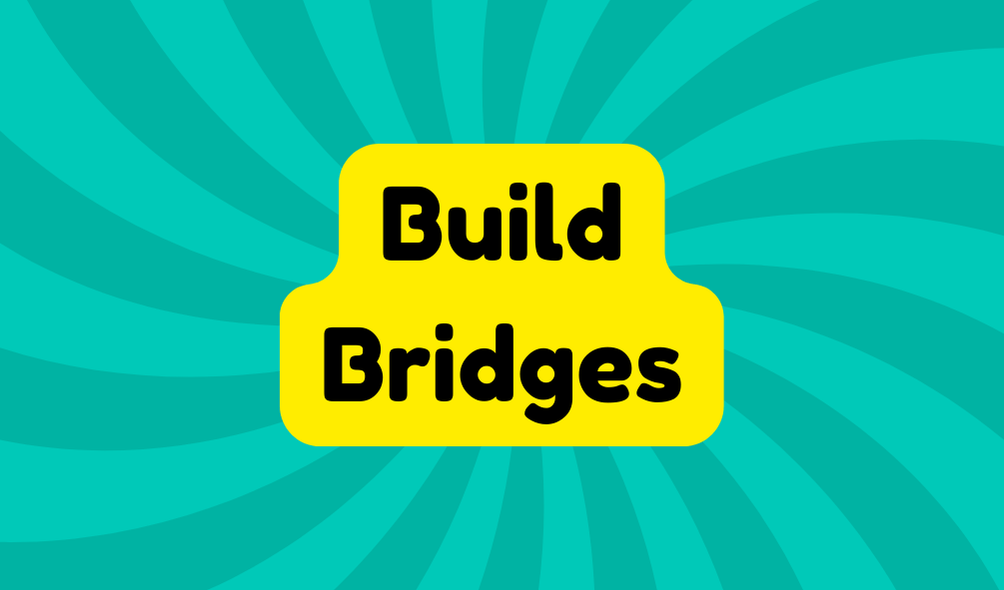"Building bridges" means creating connections and understanding among different groups. It stems from the Latin *pontifex*, highlighting the role of priests as negotiators. This phrase is often used in contexts like community dialogue and educational programs. While these efforts can foster unity, skepticism remains regarding their effectiveness. Genuine commitment is essential for success. In today's divided world, this concept is more relevant than ever. There is much more to uncover about its impact and significance.
Synonyms
The concept of "building bridges" is often emphasized in various contexts, invoking a sense of connection and collaboration. Synonyms for this phrase reflect the intricate process of relationship building and conflict resolution:
- Cultivating connections
- Fostering dialogue
- Creating understanding
These alternatives not only emphasize the importance of approaching differences with empathy but also remind us of the challenges inherent in bridging gaps. While the notion of building bridges can be uplifting, it requires continual effort and sincerity. Questions linger about whether mere words can enact meaningful change or if genuine commitment is essential to foster lasting understanding among diverse communities.
Example of Sentences
Building bridges is a phrase frequently used to describe efforts aimed at fostering connections and understanding among diverse groups. Effective sentences illustrate this concept:
- "A non-governmental organization employs innovative bridge building strategies to unite rival communities."
- "Initiatives that promote intergroup communication can lead to lasting change and social harmony."
- "Educational programs that encourage dialogue aim to build bridges between students from differing backgrounds."
These examples reveal that bridging divides requires deliberate effort. While good intentions exist, results may vary, urging individuals to critically evaluate the effectiveness of their attempts at connection. Ultimately, fostering understanding remains a compelling, though challenging, endeavor.
Origin
Originating from the Latin term *pontifex*, meaning "bridge builder," the phrase "build bridges" carries profound historical significance. This concept intertwines with cultural diplomacy and highlights the essential act of bridge building, not only in a literal sense but also figuratively among differing groups. The origins reveal a compelling connection between roles of priests in ancient Rome and engineers tasked with creating physical bridges.
| Term | Significance |
|---|---|
| *Pontifex* | "Bridge builder" in Latin |
| Cultural Diplomacy | Using dialogue to foster understanding |
| Bridge Building | Metaphorical linking of communities |
| Historical Role | Priests as negotiators between domains |
| Idiomatic Expression | 'Build bridges' predates 'burn bridges' |
Collocations
Collocations related to "building bridges" greatly enhance the phrase's application in various contexts, illustrating its versatility. These expressions highlight the deeper meaning behind bridge building and community connection, providing a framework for innovative thinking. Consider the emotional implications of the following:
- Creating lasting friendships
- Fostering mutual respect
- Empowering diverse dialogues
While these collocations resonate with optimism, readers should remain aware that mere phrases can't solve complex societal issues. It takes genuine effort and commitment to enact real change. Understanding and utilizing these collocations can inspire individuals to work towards more inclusive communities, yet skepticism about their efficacy is warranted.
How to Use in Everyday Language
Using the phrase "build bridges" in everyday language can be a powerful way to communicate the intention of fostering understanding and cooperation between individuals or groups. People seeking to implement effective bridge building strategies should be cautious, as merely stating this intention does not guarantee success. It is crucial to engage actively in dialogues that enhance community cohesion. Discussions should focus on shared goals, acknowledging differences while seeking common ground. While the phrase sounds noble, genuine commitment and sustained effort are necessary to translate words into meaningful actions. Ultimately, building bridges requires real-time effort rather than merely a collection of well-meaning sentiments.
Why Is It Still Relevant Today?
In an increasingly divided world, the concept of "building bridges" remains highly relevant, serving as an indispensable reminder of the need for connection and understanding. As society grapples with challenges like social division and polarization, promoting community dialogue is essential to fostering meaningful interactions. Building bridges encourages collaborative frameworks for conflict resolution, urging individuals to engage with differing viewpoints. This approach not only enhances empathy but also addresses the root causes of friction among diverse groups. Ultimately, the bridge-building ethos is critical today, as it cultivates unity in an era that often favors isolation and misunderstanding over collaboration and acceptance.







